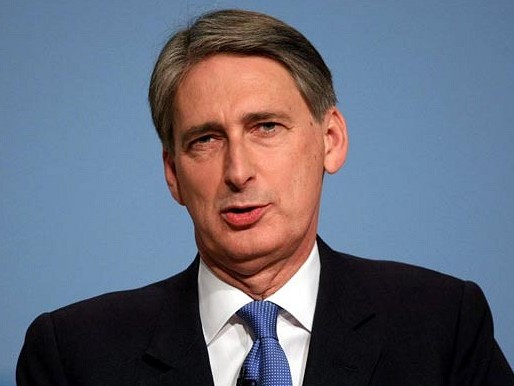Britain’s foreign secretary has dismissed as ‘bizarre’ the Lib Dem plan to enshrine the foreign aid budget in law by passing a bill fixing the amount of money the country gives away abroad at almost one percent of the gross domestic product.
Philip Hammond made the remarks about British aid and the public appetite for spending £12 billion a year on foreign aid while in West Africa as he reviewed the military-led British mission to the Ebola-stricken former colony of Sierra Leone. Mr. Hammond said that while British people didn’t begrudge tax money being used for emergency relief in the case of events such as pandemic outbreaks, he acknowledged the problem of aid money being misused in corrupt countries, reports the Daily Telegraph.
The United Nations asks nations to contribute 0.7 percent of their GDP to foreign aid, and plans to guarantee that level of giving in law was included both in the Conservative 2010 manifesto and the coalition agreement. Coalition partners the Liberal Democrats have since been the most enthusiastic proponents of getting the law onto the statute books, even though the target is already been met.
Forcing future governments to use 0.7 percent of GDP every year, regardless of economic performance or global need for aid has angered Conservative backbenchers, and clearly struck Hammond as a futile, pointless exercise. Of the plans, he said: “Trying to enshrine it in law – it’s a bizarre idea. [For example,] Somebody says shall we have a law that says you’ve got to build a building.
“Think about it – in the mean time we built a building. Someone comes along and says now we’ve built it shall we pass the law which says we’ve got to do it? We’ve done it. We’re doing it. You don’t need a law to say we’re doing it.”
The foreign secretary said that while he recognised people were increasingly sceptical of foreign aid, he didn’t think that ever translated to distrust of aid given in emergency situations: “The scepticism that some people have about the aid budget, which I absolutely recognise… I don’t think has ever been directed at emergency aid.”
“I’ve never detected in Britain at all people saying we shouldn’t be sending food aid or disaster relief or earthquake relief. It’s never been that bit of the programme. It’s been the, ‘We’ll invest over two decades in education in India, economic development in East Africa’. It’s that bit of it that people sometimes question. But I’m sure the British people always feel very well-disposed to the disaster relief.”
Britain has taken the lead in responding to the Ebola outbreak in its former colony, while the French are managing their former colony Guinea, and the United States former American colony Liberia. The spread of the virus has now claimed over 5,000 lives in this outbreak, and a significant aid programme is under way. More than 1,000 doctors and nurses from Britain’s National Health Service have volunteered for service in West Africa, and 800 sailors, soldiers, marines and airmen from the UK are presently delivering aid.

COMMENTS
Please let us know if you're having issues with commenting.